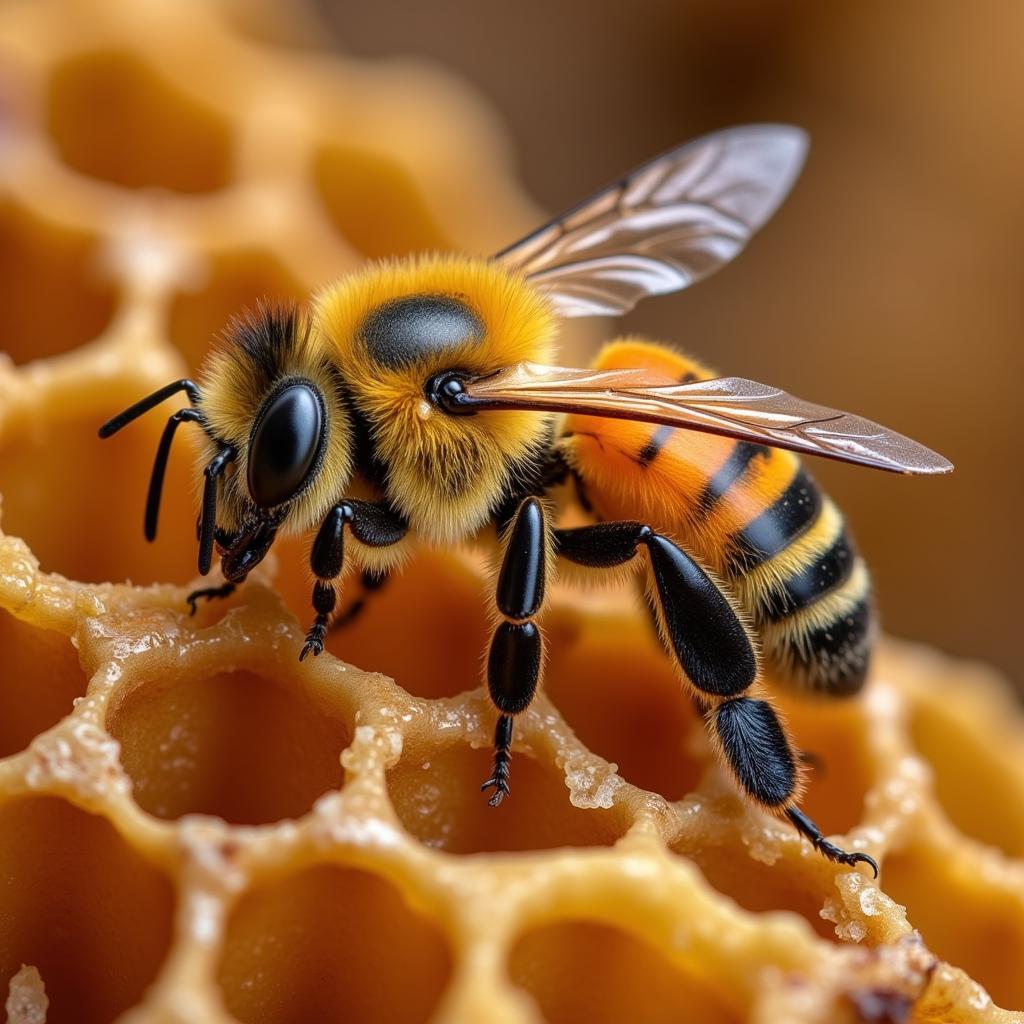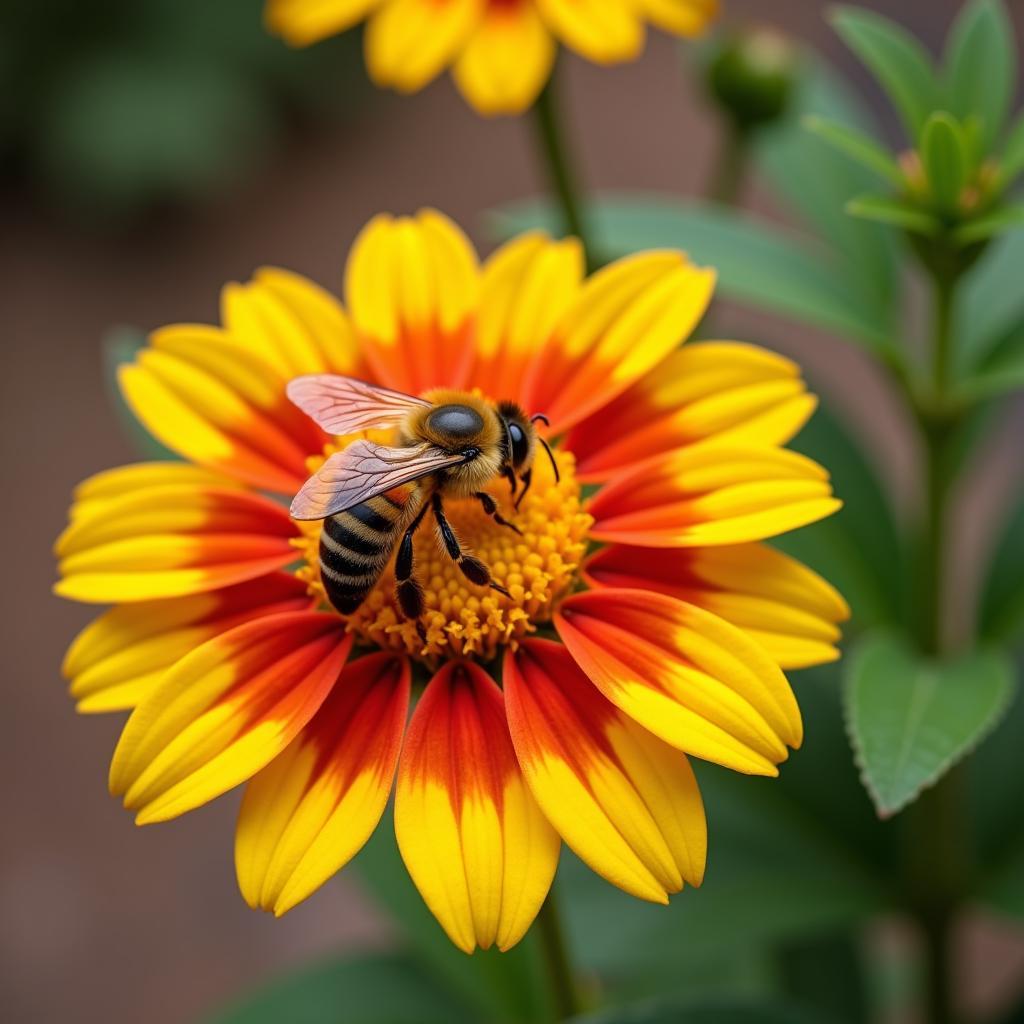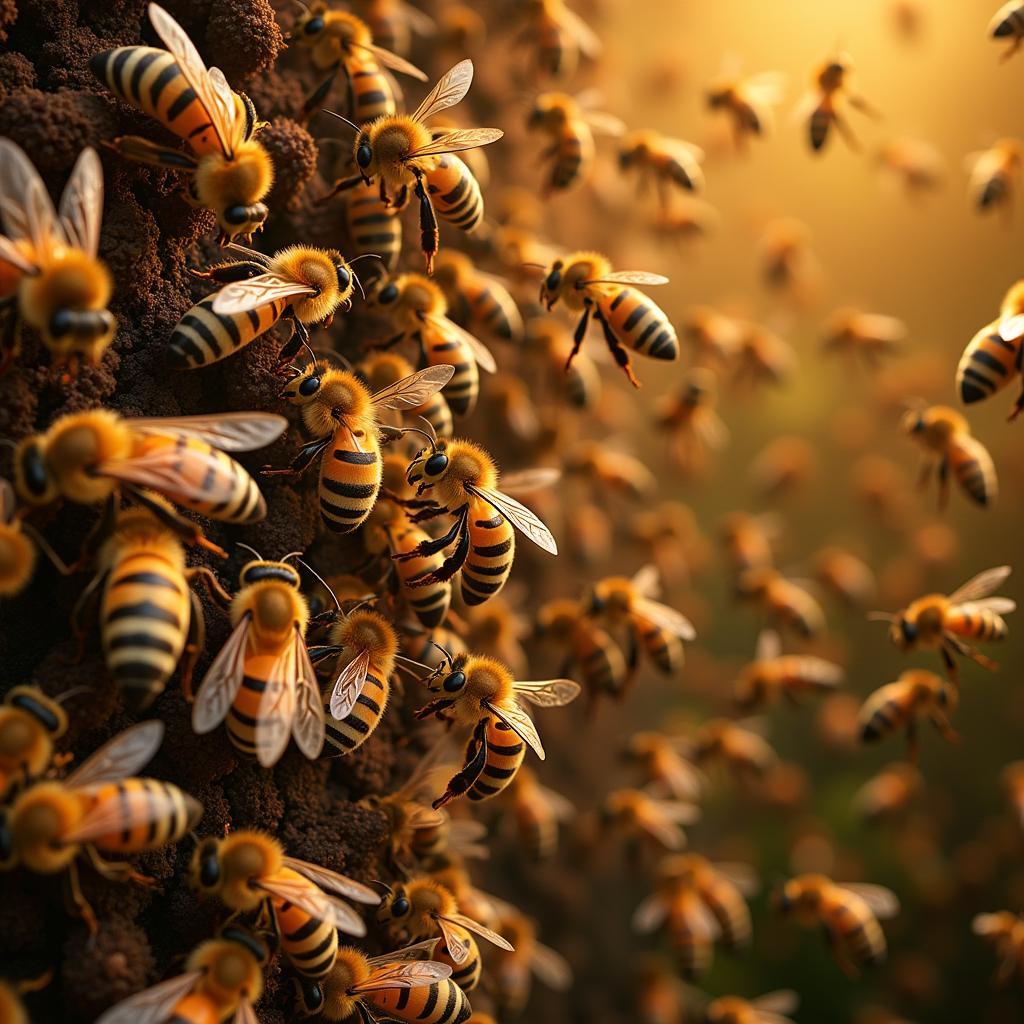Unveiling the African Honey Bee: A Scientific Perspective
The African honey bee, scientifically known as Apis mellifera scutellata, is a subspecies of the Western honey bee. Renowned for its adaptability and resilience, this remarkable creature plays a crucial role in the intricate tapestry of Africa’s ecosystems. Let’s delve into the fascinating world of the African honey bee, exploring its characteristics, behavior, and ecological significance.
What Defines an Apis mellifera scutellata?
The Apis mellifera scutellata possesses a distinctive set of characteristics:
- Physical Appearance: Similar in size to European honey bees, they exhibit a golden-yellow abdomen with black stripes.
- Geographic Distribution: Native to sub-Saharan Africa, they have expanded their range to other parts of the world.
- Highly Defensive: Known for their aggressive defense mechanisms when threatened, they exhibit rapid colony growth and frequent swarming behavior.
 African honey bee on honeycomb
African honey bee on honeycomb
Navigating the African Honey Bee’s Behavior
Understanding the behavior of the African honey bee is crucial for appreciating its ecological role:
- Foraging Prowess: These bees are highly efficient foragers, covering vast distances in search of nectar and pollen.
- Colony Defense: Their aggressive defense mechanisms stem from the need to protect their hives and honey stores from predators, including humans.
- Swarming Patterns: Frequent swarming is a natural process for colony reproduction and expansion, often triggered by environmental factors.
The Ecological Significance of the African Honey Bee
- Pollination Powerhouse: African honey bees are vital pollinators for a wide range of plants in Africa, contributing significantly to biodiversity and ecosystem stability.
- Honey Production: Their honey, a valuable food source for both humans and animals, is renowned for its unique flavor and medicinal properties.
 African honey bee pollinating a flower
African honey bee pollinating a flower
The African Honey Bee: A Force of Nature
“The Apis mellifera scutellata is a testament to the power of adaptation,” says Dr. Ayoade Ogunbiyi, a renowned entomologist specializing in African bee species. “Their resilience and unique behavioral patterns have allowed them to thrive in diverse and challenging environments.”
 African honey bee swarm
African honey bee swarm
The African Honey Bee and Human Interaction
- Beekeeping Practices: Traditional and modern beekeeping practices in Africa have evolved to accommodate the unique traits of these bees.
- Sting Risk Management: Understanding their defensive behavior is essential for mitigating potential risks associated with bee stings.
Conclusion: A Vital Species in Africa’s Heart
The African honey bee, with its intriguing scientific name Apis mellifera scutellata, stands as a vital thread in the rich tapestry of Africa’s ecosystems. From their pollination prowess to their role in honey production, these bees are integral to the continent’s biodiversity and ecological balance. By appreciating their unique characteristics and behaviors, we can foster coexistence and ensure the continued well-being of this remarkable species.
Do you want to know more about the African honey bird or the traditional African cough syrup?
For further inquiries or assistance, please contact us at:
Phone Number: +255768904061
Email: kaka.mag@gmail.com
Address: Mbarali DC Mawindi, Kangaga, Tanzania.
Our dedicated customer support team is available 24/7 to assist you.



